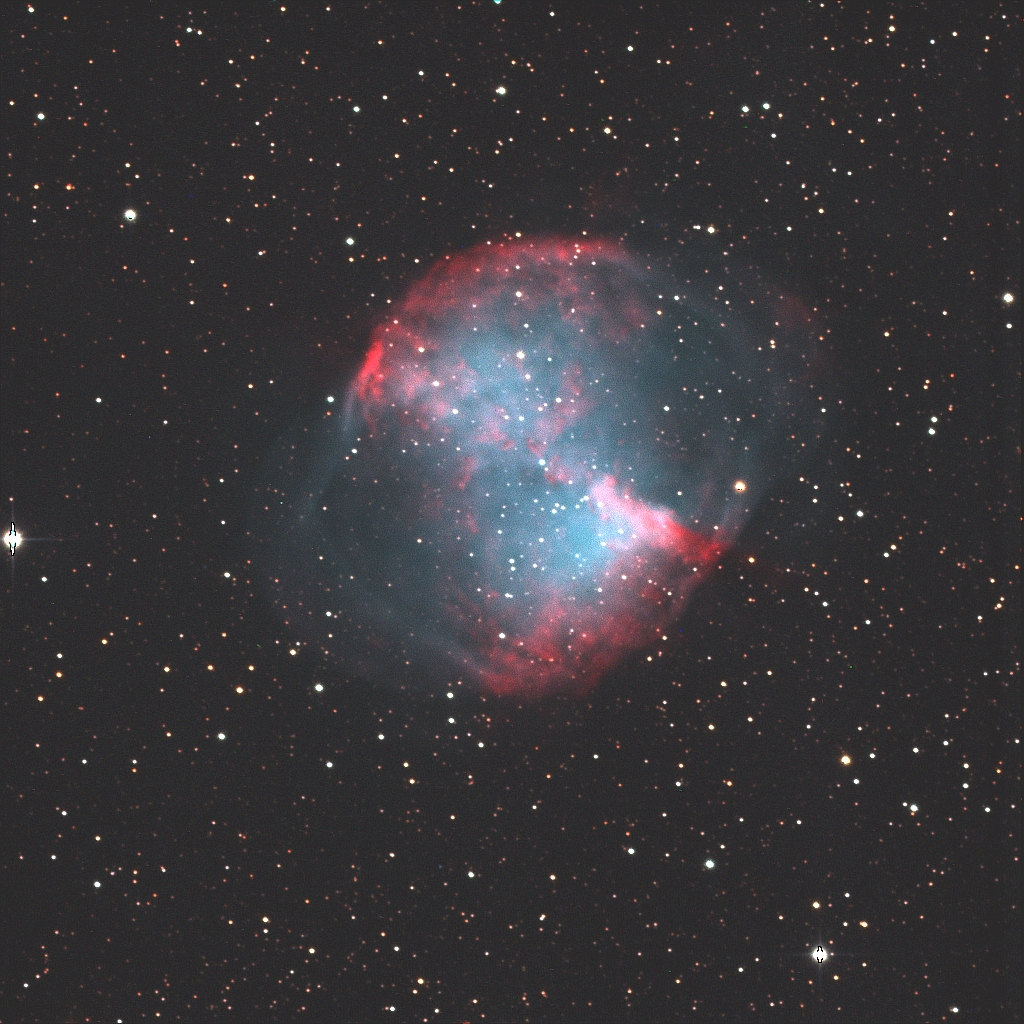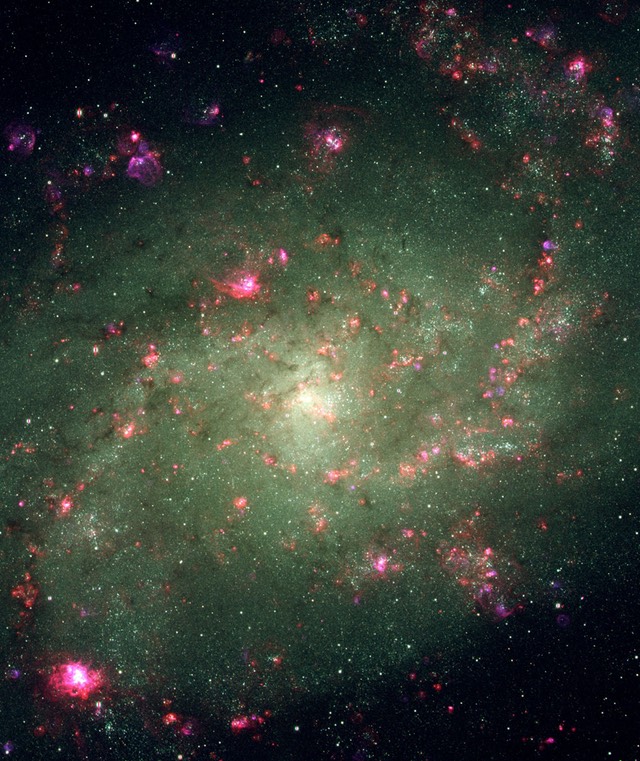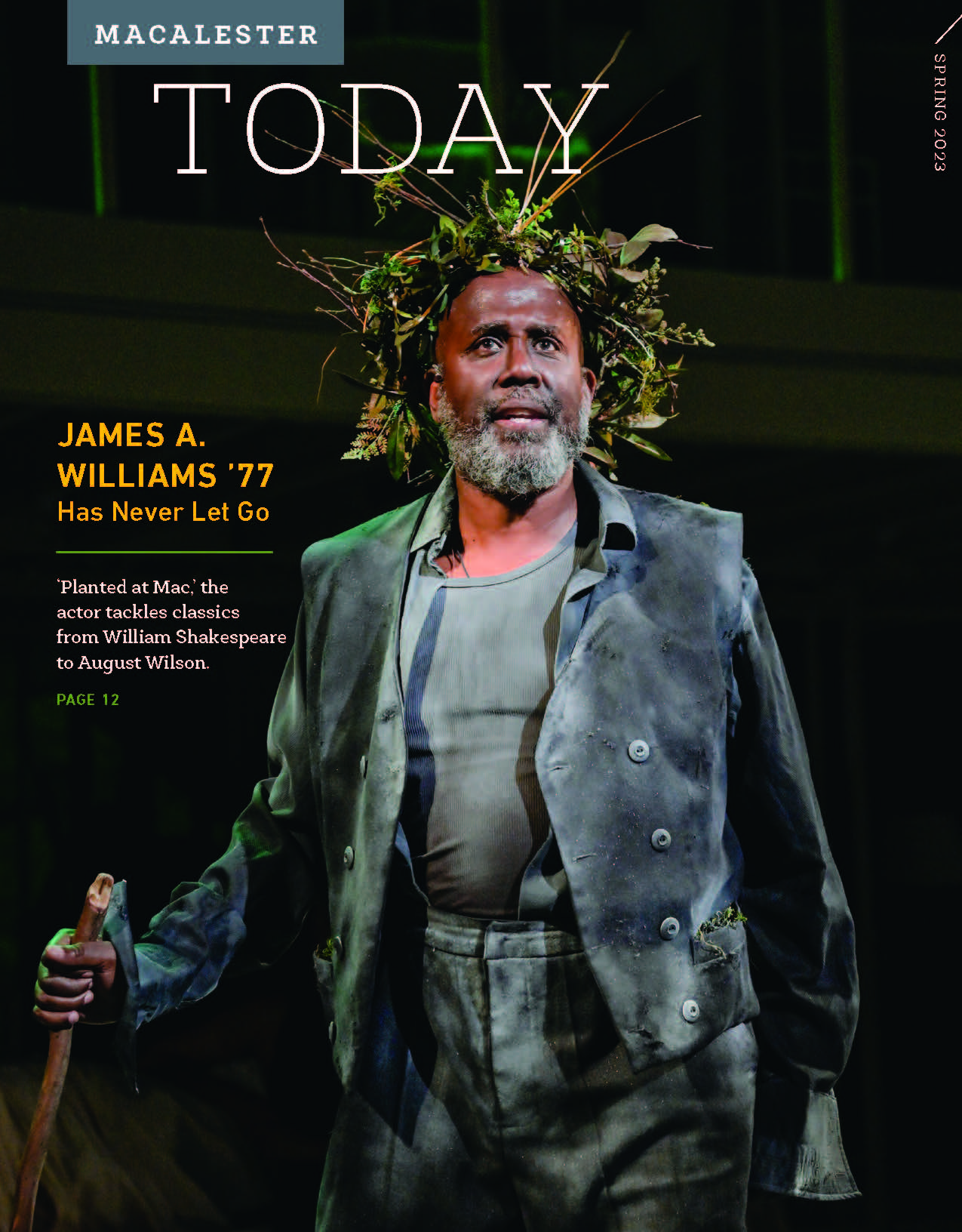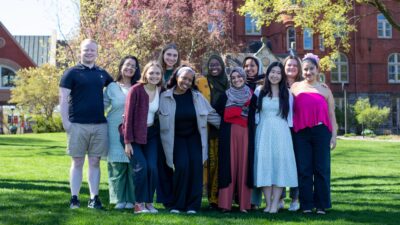
“Students and faculty now have guaranteed access to a superb telescope that will support classes and enable sophisticated research projects that can result in peer-reviewed publications.”
—Dr. John Cannon
Beginning this winter, Macalester students have access to an advanced research-quality optical telescope in southern Arizona, equipped with instrumentation that allows exploration of astrophysical phenomena like never before. It’s a giant leap forward for Macalester’s astronomy program. “This new observing facility is transformative,” astronomy professor John M. Cannon says. “Students and faculty now have guaranteed access to a superb telescope that will support classes and enable sophisticated research projects that can result in peer-reviewed publications. The data quality is exquisite and the images are simply dazzling.”

Macalester leads the newly-formed Macalester-Augustana-Coe Remote Observatory (MACRO) Consortium. In the spirit of discovery and with mutual interest in education, research, and collaboration, Macalester, Augustana College (Rock Island, Illinois), and Coe College (Cedar Rapids, Iowa) established MACRO in order to take over stewardship of the Robert L. Mutel Telescope, a fully robotic telescope system located at the Winer Observatory. The telescope is named after its founder, Dr. Robert L. Mutel, professor emeritus of astronomy at the University of Iowa. Over the past twenty-five years, Mutel has been a pioneer of the “remote observatory” model, in which a telescope facility is located in a superior observing site and then operated from afar. Mutel’s Iowa Robotic Observatory is a nationally recognized example of a successful remote observatory designed primarily for undergraduate students.
Upon Mutel’s retirement, three of his former University of Iowa students envisioned a consortium to take on the telescope’s management and operation, and Professor Cannon worked alongside Dr. William Peterson (Augustana) and Dr. James Wetzel (Coe) to bring the MACRO Consortium to life. Dr. Paul Overvoorde (professor of biology and special assistant to the president at Macalester) says that MACRO gives “an impressive sense of intentional collaboration and purpose to provide top-notch student learning opportunities.”
Each of the three MACRO institutions share the majority of the observing time on the Robert L. Mutel Telescope, and the University of Iowa will also continue to have access to the facility. Mutel is happy to see the facility continue to serve undergraduate students. “I am very pleased and gratified to see this superb facility migrating to a greatly expanded student base,” he says. “There is a rich history of student involvement with all aspects of the Iowa robotic telescope facility, from design to construction to operation, starting over twenty years ago. It never would have succeeded without so many highly talented students willing to help design, build, and maintain the complex hardware and software needed. I look forward to watching the next chapter.”

The improvements in sensitivity compared to Macalester’s on-campus telescope (located on Olin-Rice Science Center’s rooftop) are dramatic. “I’m really thrilled for our students, who now have the opportunity to obtain science data with a telescope and supporting instrumentation that far surpasses what we have been able to do before at Macalester,” says Brian Adams, laboratory supervisor in the Department of Physics and Astronomy. “Our current observatory has always afforded valuable hands-on experience, where students have direct control of the telescope and instrumentation. However, as convenient as our location is for the students to conduct their observations for class projects, we are still hampered by the climate and light pollution of the Twin Cities metro area. The Winer Observatory is located at a higher altitude, far from city lights, with drier, more transparent air, that will allow us to observe much fainter targets and to see farther into the universe than we are able to from our observatory in St. Paul.”
The Robert L. Mutel Telescope will be used by astronomy students, staff, and faculty, in support of specific classes (e.g., PHYS440, “Observational Astronomy”) and also to enable student-faculty research projects. Macalester students will begin using the telescope this spring in a special topics course titled “Remote Observatory Observations.” The course will be co-taught by Cannon and visiting distinguished professor Jay Gallagher; Adams and assistant professor Anna Williams will also actively collaborate with the class. Gallagher sees the access to the Mutel Telescope as “presenting the opportunity for students to lead in obtaining and analyzing research quality astronomical data on celestial objects they select using a modern, well-instrumented telescope in a superb site.” Students from the other MACRO institutions will also take part in activities related to the course. “I can’t wait for the students to get a chance to use and get to know this telescope,” Williams says. “From the remote capabilities to the intercollegiate collaboration, the students are going to get a truly authentic observing experience, very similar to what professional astronomers do day-to-day.”
The future of the MACRO Consortium is bright. In addition to strengthening classes and re-envisioning curricula, each institution’s faculty leads will work to enable new observational capabilities and to provide immersive experiences to students. These include summer student-faculty research projects, student visits to the telescope, consortium meetings to bring together students and faculty from the MACRO institutions, the commissioning of a sophisticated fiber spectrograph, and more.
January 9 2023
Back to top





